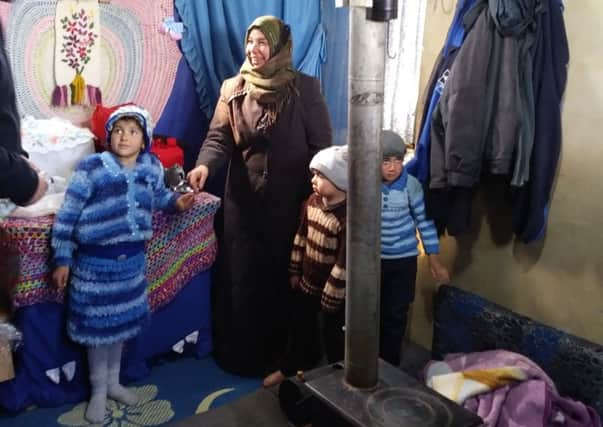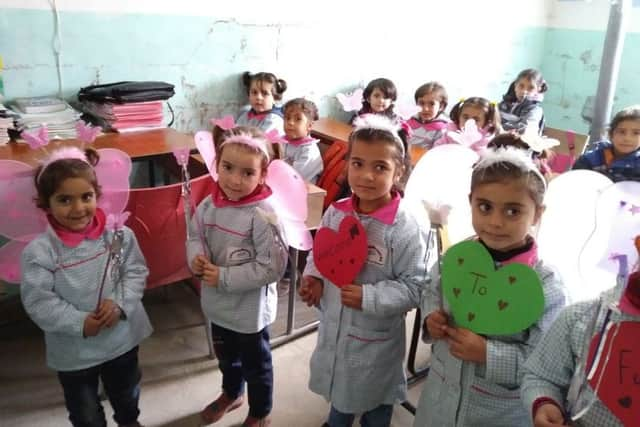Seven years on and refugees are still living in limbo


Now a charity worker from Edinburgh has revealed how refugee families are trying to come to terms with living in limbo, as this month marks the eighth year of conflict in the Middle Eastern nation.
Ann Thanisch, a former NHS accountant who works with Edinburgh Direct Aid, met refugee families when she visited Arsal in Lebanon in February.
Advertisement
Hide AdAdvertisement
Hide AdEDA, which relies on grants and donations from the UK, runs a primary school for refugee children in the town – which is home to dozens of scattered camps – and is also trying to fundraise to pay teachers at an existing day facility for disabled young people.


Photographs taken by Thanisch show families living in a small space, with home-crocheted blankets adorning the walls – both for decoration but also for warmth.
But the charity worker, 62, found that while many families had managed to make their tents into homes, with some building concrete walls around the canvas and metal structure, they still hoped to eventually return home to Syria.
“They do not want to stay there,” she said. “They are not happy in Lebanon and some feel exploited.
“One lady told me that when Lebanon had been in a conflict situation, a refugee family had come over the border into Syria and they had looked after them and fed them for free for a year. They do not find the same welcome in Lebanon, but the country is feeling overwhelmed.”


Lebanon is home to around one million Syrian refugees, according to the latest figures from UNHCR, the United Nation’s refugee arm, with over three-quarters of them living on less than £3 (UK) per day.
Thanisch said that the refugees do not have hope that they will move to a more permanent situation soon.
“It’s all about making their homes as warm as possible,” she said. “For one family I met, this was their fourth winter there and they do not expect anything will have changed by their fifth.
Advertisement
Hide AdAdvertisement
Hide Ad“They are amazingly resilient and do what they can, but I don’t think they see their long-term future being where they are. They are terrified of going back to Syria – all of the young men are immediately drafted in to fight, either to the army or a militant group.
“But they want to make sure their children follow the Syrian curriculum.”
EDA pays to run a primary school for refugee children in the Waddi Atta camp – including paying Syrian refugee teachers to take classes – while they hope to raise funds to sustain an existing centre for disabled youngsters. The organisation also funds sewing machines, which allow the refugees to hold workshops where they can make clothes and essentials.
However, money is proving harder to find as the crisis continues.
“It is very difficult to find grants for disabled refugees,” said Thanisch. “Everything is very much in its own little box. If I wanted a grant for supplies for refugees, no problem. Or for disabled people over here. But there is nothing for disabled refugees. People don’t think about refugees who have a disability or refugees with cancer. But of course, they exist.”
Even major charities are having to step back in the region, as conflict in the Middle East puts increasing pressure on budgets.
“People have almost forgotten about Syrian refugees,” she added. “Five years ago, if we held a stall at a market in Edinburgh, we would get £700 in one day. Now we get £400. The people who support us are very loyal, they keep coming back, but it’s not as easy as it was.”